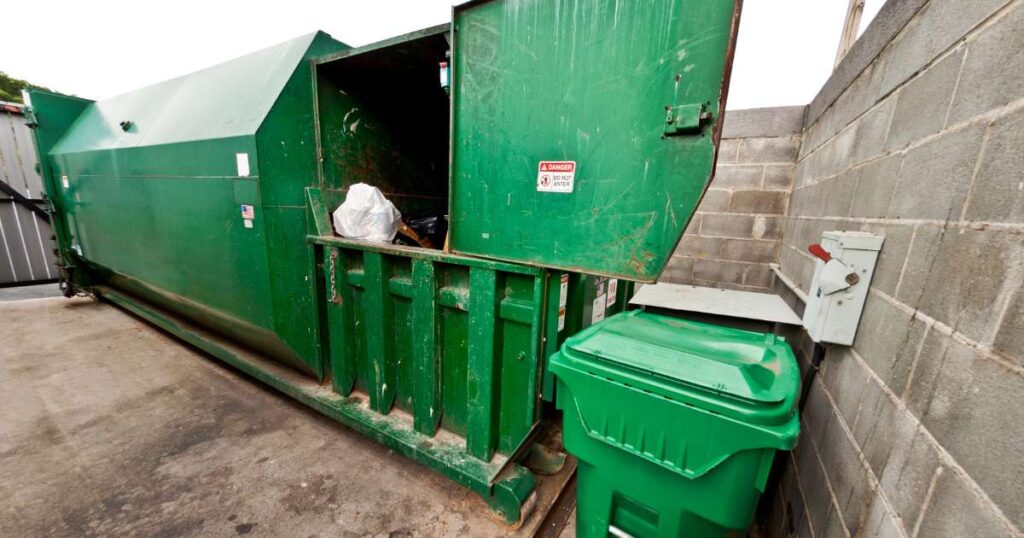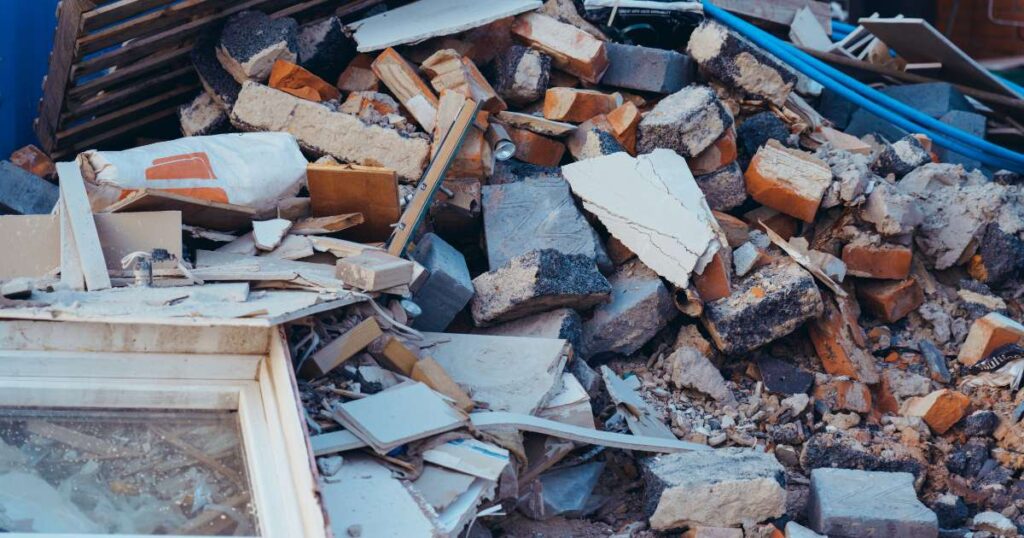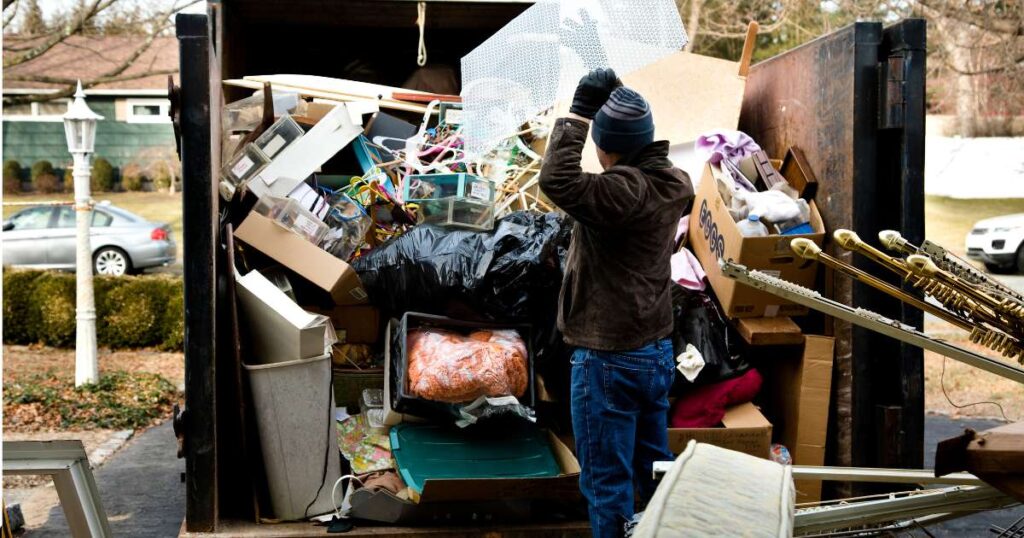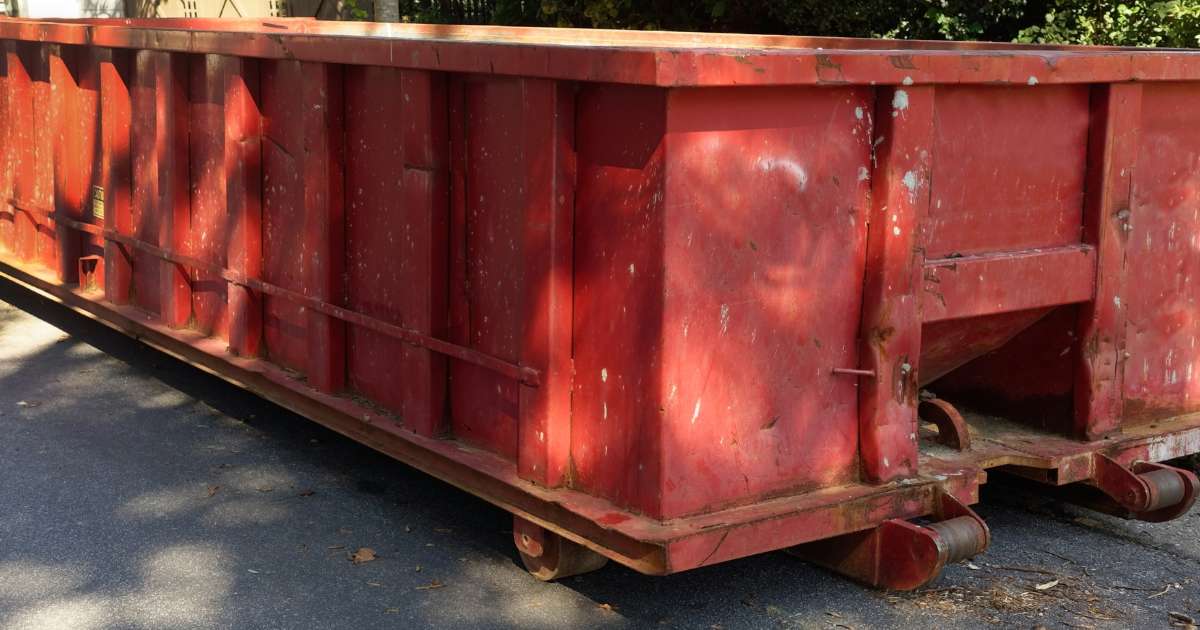Dumpster rental services are an essential resource for managing waste effectively during projects ranging from small home cleanouts to large-scale construction work.
These services provide a convenient, efficient, and cost-effective way to handle waste, but there are several important factors to consider to ensure a smooth rental experience.
Here’s an in-depth guide on everything you need to know about dumpster rental services.
Types of Dumpster Rentals
Understanding the different types of dumpsters available will help you choose the right one for your specific needs. Here’s a closer look:
Roll-Off Dumpsters:
These are the most versatile and commonly used dumpsters, particularly for temporary projects like construction, renovation, or major cleanouts. They are named for their ability to be rolled off the delivery truck and placed in your desired location.
Roll-off dumpsters are open-topped, making them easy to load with bulky debris such as construction materials, old furniture, or large amounts of waste.
Wondering if a roll-off dumpster fits your small clean-up job? You can also learn more about renting a dumpster for a single-day clean-up job in our article here.
Commercial Dumpsters:
Commercial dumpsters are commonly used by businesses for regular waste disposal and are smaller than roll-off dumpsters. They come with lids and are typically placed behind businesses, restaurants, and apartment buildings for consistent trash removal. The rental service typically empties these dumpsters on a weekly basis or as per the agreed schedule.

Residential Dumpsters:
These are smaller, more compact dumpsters designed for residential use. They’re ideal for smaller projects like garage cleanouts, yard waste disposal, or minor home renovations.
Residential dumpsters are designed to fit more comfortably in driveways or small spaces without taking up too much room. Selecting the right type of dumpster is crucial for ensuring it meets your project’s demands without being oversized or under-capacity.
Dumpster Sizes and Their Uses
Dumpster sizes are measured in cubic yards, and choosing the correct size is one of the most important decisions you’ll make. Let’s break down common sizes and their ideal uses:
10-Yard Dumpster: This small dumpster is perfect for minor cleanout projects, such as cleaning out a single room, attic, or garage. It’s also a good choice for small renovation projects, like bathroom remodels. It typically holds about 10 cubic yards of waste, equivalent to three pickup truck loads.
20-Yard Dumpster: The 20-yard dumpster is a versatile size that can accommodate medium-sized projects like roofing jobs, basement cleanouts, or large yard waste removal. It can hold around 20 cubic yards of debris, or about six pickup truck loads. This size is popular for both residential and small commercial projects.
30-Yard Dumpster: This larger size is suitable for significant home renovations, construction projects, or large-scale cleanouts. It can hold approximately 30 cubic yards of waste, which is about nine pickup truck loads. If you’re tackling a big project, like remodeling multiple rooms or constructing a new home, this size offers the capacity you need.
40-Yard Dumpster: The largest size available, the 40-yard dumpster is best suited for major construction projects, large demolition jobs, or massive cleanouts. It holds about 40 cubic yards of debris, equivalent to 12 pickup truck loads. This size is often used on commercial sites or for very large residential projects.
Choosing the right size ensures that you have enough space for your debris without overpaying for excess capacity. It also helps avoid the inconvenience of needing multiple pickups or additional dumpsters. If you’re unsure, our detailed page on what size dumpster you need for home renovation projects offers more insight.
Learn more about what types of projects are suitable for a 15-yard dumpster or a 20-yard dumpster.
What Can and Cannot Be Disposed Of?
Understanding what materials are allowed in your dumpster is essential to avoid fines, delays, or even legal issues. Here’s a detailed look at what you can and cannot dispose of:
Allowed Items: Most household junk, construction debris (wood, drywall, bricks), furniture, yard waste (leaves, branches), and non-hazardous materials are typically allowed in a dumpster. These items are considered general waste and are acceptable for disposal in most landfills.
Prohibited Items: Many materials are prohibited due to environmental regulations. These include hazardous waste like paints, chemicals, solvents, asbestos, pesticides, and medical waste. Electronic waste (e-waste) such as old computers, televisions, and other electronics often require special disposal methods due to toxic components like lead or mercury. Tires, batteries, and large appliances like refrigerators (which contain refrigerants) may also be restricted or require special handling. Learn more about can electronics be thrown in rental dumpsters on our guide.
Special Considerations: Some items, like mattresses, may be accepted but incur additional fees due to the difficulty of disposal. Similarly, certain items may require you to obtain a separate waste disposal solution, such as hiring a specialized service for hazardous waste.
Always check with the dumpster rental company for a comprehensive list of prohibited items, and consider environmentally friendly disposal methods for restricted materials, such as recycling or hazardous waste collection events.

Rental Periods and Flexibility
The rental period for a dumpster can vary depending on your project’s needs. Here’s what you need to know about rental periods and how to plan effectively:
Standard Rental Period: Most dumpster rental companies offer a standard rental period, typically ranging from 7 to 10 days. This period is often sufficient for most residential projects, such as home cleanouts or small renovations.
Extended Rental Periods: For larger projects or commercial use, you may need the dumpster for a longer time. Many companies offer extended rental periods at an additional daily or weekly cost. It’s important to discuss your timeline with the rental company upfront to ensure you don’t incur unexpected fees.
Flexible Pickup Options: Some companies offer flexible pickup options, where you can schedule the dumpster’s removal as soon as your project is complete. This flexibility can be particularly useful if your project timeline is uncertain or if you finish earlier than expected.
Planning your rental period accurately and understanding the terms of extension can save you money and ensure that the dumpster is available for as long as you need it.
Cost Considerations
The price of renting a dumpster is affected by various factors. Understanding these will help you budget appropriately and avoid surprises:
Size of the Dumpster: Larger dumpsters generally cost more due to their increased capacity and weight limit. For example, a 10-yard dumpster might be significantly less expensive than a 30-yard dumpster.
Rental Duration: The longer you keep the dumpster, the more it will cost. Be mindful of the rental period included in your initial quote and any additional fees for extending the rental.
Location: Your location plays a significant role in cost due to differences in local landfill fees, transportation costs, and regional demand. Urban areas might have higher costs compared to rural locations.
Type of Debris: The type of debris you’re disposing of can affect the cost, especially if it’s heavy materials like concrete, dirt, or shingles. Some rental companies have weight limits, and exceeding these can result in additional fees.
Additional Fees: Be aware of potential additional costs, such as delivery and pickup fees, overage charges for exceeding weight limits, and taxes. Some companies may also charge fees for specific types of waste, like mattresses or appliances.
Getting a detailed quote that includes all potential fees will help you budget accurately. It’s also worth asking about any discounts or special offers that might be available.
Learn more about whether dumpster delivery is included in the rental price.

Permits and Placement
Before placing a dumpster on your property or a public space, you may need to secure permits. Here’s what you should consider:
Street Placement: If you plan to place the dumpster on a public street or sidewalk, you’ll likely need a permit from your local municipality. The permit process can vary depending on your location, so it’s essential to check with local authorities well in advance. Some rental companies may assist with the permitting process, but it’s generally the renter’s responsibility.
Private Property: Placing the dumpster on private property, such as a driveway or construction site, usually doesn’t require a permit. However, you should ensure that the surface is capable of supporting the weight of the dumpster without causing damage. If you’re unsure, consult with the rental company about the best placement options.
HOA and Neighborhood Regulations: If you live in a neighborhood governed by a Homeowners Association (HOA), there may be additional rules regarding dumpster placement. Check with your HOA to avoid fines or complaints.
Discussing placement options with the rental company and understanding local regulations will help you avoid delays and ensure the dumpster can be delivered and picked up without issues.
Loading the Dumpster
Properly loading your dumpster can maximize its capacity and prevent additional costs. Here’s how to do it effectively:
Even Distribution: Distribute the weight of your debris evenly throughout the dumpster to avoid tipping or damaging the container. This also makes it safer and easier for the rental company to transport the dumpster when it’s time for pickup.
Break Down Large Items: Breaking down large items, such as furniture or boxes, can help you maximize the space inside the dumpster. This ensures that you’re using the full capacity and not wasting valuable space on air pockets or bulky items.
Avoid Overfilling: It’s important to avoid overfilling the dumpster. Most rental companies have strict guidelines about how high debris can be piled. Overfilling can make it unsafe for transport and may result in the rental company refusing to pick up the dumpster or charging additional fees.
Consider Weight Limits: Be mindful of the dumpster’s weight limits, especially if you’re disposing of heavy materials like concrete, bricks, or soil. Exceeding these limits can result in overage charges, so it’s often better to rent a larger dumpster if you anticipate a heavy load.
Efficient loading practices not only save you money but also ensure that the dumpster is safe and ready for pickup when your project is complete.

Choosing the Right Rental Company
Selecting a reputable dumpster rental company is crucial for a seamless experience. Here’s what to consider:
Research and Reviews: Start by researching companies in your area and reading customer reviews. Look for companies with a strong reputation for reliable service, transparent pricing, and responsive customer support.
Clear Communication: Choose a company that is clear and upfront about their pricing, rental terms, and any additional fees. Good communication is key to avoiding misunderstandings and ensuring that all your needs are met.
Availability and Flexibility: Consider the company’s availability and flexibility, especially if you have a tight project timeline or specific requirements. A company that can accommodate your schedule and offer flexible pickup options will make the rental process much smoother.
Local Knowledge: A company with local knowledge can be particularly beneficial, as they’ll be familiar with local regulations, permit requirements, and landfill options. This expertise can save you time and help avoid potential issues.
Selecting the right rental company ensures that your dumpster rental experience is smooth, cost-effective, and free of unexpected surprises.
For detailed pricing information, check out our guide on dumpster rental cost.
Frequently Asked Question
What size dumpster do I need for my project?
The dumpster size you require is determined by the scale of your project. A 10-yard dumpster typically suffices for small cleanouts or minor renovations. For medium-sized projects like roofing or basement cleanouts, a 20-yard dumpster works well. Large construction or renovation projects typically require a 30-yard or 40-yard dumpster. It’s important to estimate the volume of debris your project will generate and consult with the rental company to choose the right size.
How long can I keep the dumpster?
Most dumpster rental companies offer a standard rental period of 7 to 10 days. However, if your project requires more time, many companies offer extended rental periods for an additional fee. It’s best to discuss your timeline with the rental company when booking to avoid unexpected costs.
What can I throw in a dumpster?
You can dispose of most household junk, construction debris (such as wood, drywall, and bricks), furniture, and yard waste in a dumpster. However, hazardous materials like chemicals, paints, asbestos, and certain electronics are typically prohibited. Always check with the rental company for a full list of acceptable items to avoid fines or complications.
Are there items that I cannot put in a dumpster?
Yes, several items are prohibited from being disposed of in a dumpster. These include hazardous waste (like paints, solvents, and chemicals), electronic waste (such as computers and TVs), tires, batteries, and large appliances containing refrigerants (like refrigerators). It’s essential to consult the rental company’s guidelines and local regulations for a complete list of prohibited items.
Conclusion
Dumpster rental services are a vital part of managing waste efficiently during any project. By understanding the different types of dumpsters, choosing the right size, and being aware of what can and cannot be disposed of, you can ensure a hassle-free experience.
Additionally, considering factors like rental periods, costs, permits, and choosing a reputable rental company will help you make the most of your rental.
Whether you’re tackling a small home cleanout or a large construction project, being well-informed will help you navigate the process with ease and confidence.
